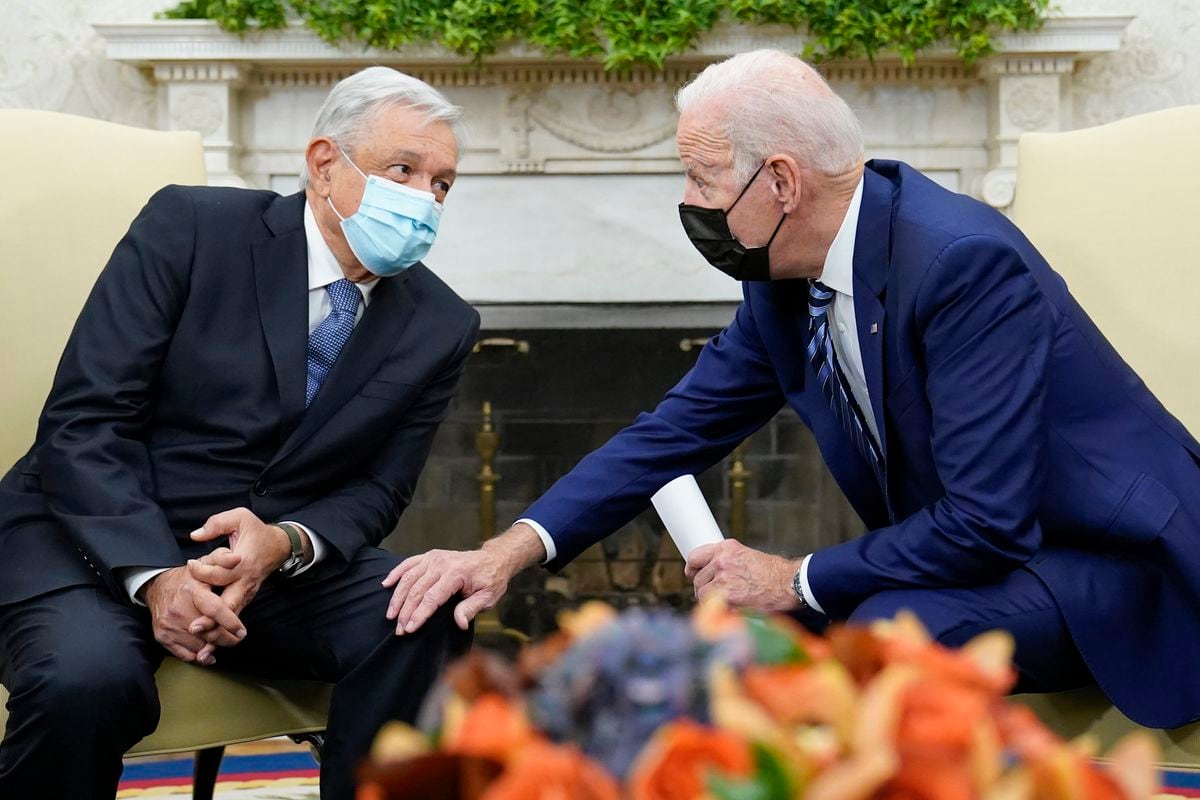Health, clean energy, climate change, democracy and digitization. Those will be the aspects in which the United States hopes that the Summit of the Americas will reach political commitments next week in Los Angeles, as explained by the State Department on Wednesday. The list of topics, however, has been overshadowed by the list of attendees. Surprisingly, one week before the Summit, the invitations and who accepts or does not accept the invitation are still not closed.
“I am not going to go into details, but what I am going to tell you is that we have had very respectful conversations with Mexico in which they asked Cuba to attend and, being such a close ally, we have listened carefully to their position,” said Juan González. , the director of the National Security Council for the Western Hemisphere.
“We still have final considerations,” González said at a press conference he gave together with the Undersecretary of the Department of State for the Western Hemisphere, Brian Nichols. There were many expectations that this Wednesday the mystery would be cleared up, because the Summit is just around the corner. The leaders program begins on Wednesday 8, but the first activities are scheduled for Monday 6 June.
González has said that he has treated the countries of the region as allies and that his positions are viewed with all respect, but that the White House will ultimately decide. “It is difficult to confirm anything until it finally happens, but we are confident that the Summit will have very good attendance, that the relationship with Mexico will be very positive and will continue to be, and personally the relationship between the president and Mr. López Obrador” , has explained. “The results of the summit are the important thing, let the results speak for themselves”, added Nichols.
The State Department officials have indicated: “We are still talking with several countries and when we have a final decision we will announce it.” They have added that the participation or not of Mexico in the Summit will not affect the cooperation between the countries. The preparations have turned into a diplomatic nightmare for Washington, which did not clearly announce the veto of Cuba, Venezuela and Nicaragua, but hinted that it would not invite them.
Several leaders of the region, led by the president of Mexico, Andrés Manuel López Obrador, have indicated that they will not attend Los Angeles if there are vetoes to countries in the region.
Join EL PAÍS to follow all the news and read without limits.
subscribe
The director of the National Security Agency for the Western Hemisphere has highlighted that, with the entire region, the United States is united not only by geography, but also by economic ties, democratic values, cultural interests and family ties.
The Summit of the Americas was presented as the perfect occasion to dispel doubts and make a difference with the previous president. Trump was the first to be absent from a Summit of the Americas, the event that brings together leaders from across the continent, from Canada to Chile, approximately every three years. Bill Clinton was the host of the first Summit of the Americas, in 1994, in Miami, to which all the countries except Cuba were invited.
At that time, the United States had won the Cold War, Cuba did not have firm support in the region and the Clinton Administration prepared for months a broad program that included trade agreements, the promotion of democracy, the fight against drug trafficking and development cooperation. Clinton even won sympathy among the US Latino population and won re-election with a victory in Florida by a margin that the Democrats have not achieved again.
Invitation to Fernández to Washington
President Biden seems to be spending his last cartridges to attract attendees to the Summit. This Wednesday night, Biden called the president of Argentina, Alberto Fernández, to discuss the Summit, as reported by the White House.
Biden has invited Fernández to visit Washington in July “to develop an active engagement between the United States and Argentina on bilateral, regional and global issues, specifically human rights, food insecurity, climate change and energy, technological innovation and critical supply chains”, according to a statement from the White House, which adds: “The president also outlined his vision of a secure, middle-class, democratic region that is in the fundamental interest of the national security of the United States.” And he concludes: “The president reiterated that the relationship of the United States with the Americas is based on partnership, mutual respect, and the shared goal of promoting an ecological and equitable recovery from the covid-19 pandemic.”
The statement does not specify whether that invitation to Washington has served to convince Fernández to attend the Summit. The White House managed to convince Bolsonaro after offering him a bilateral meeting with Biden in Los Angeles.
Subscribe here to the EL PAÍS América newsletter and receive all the key information on current affairs in the region.





